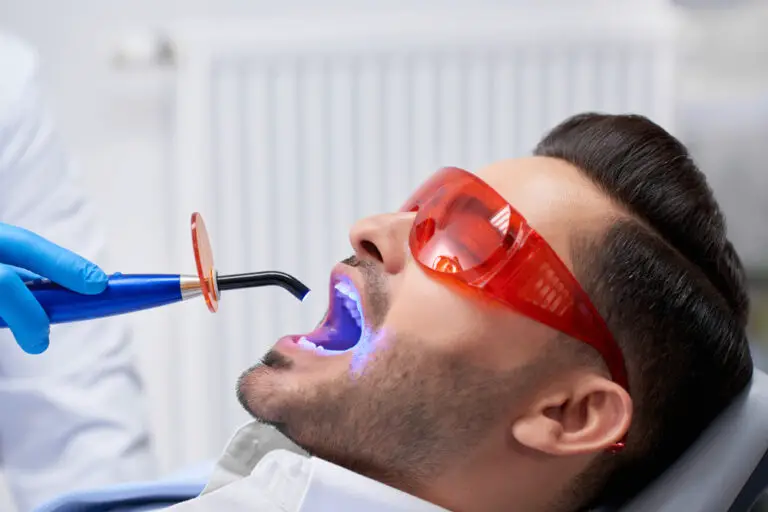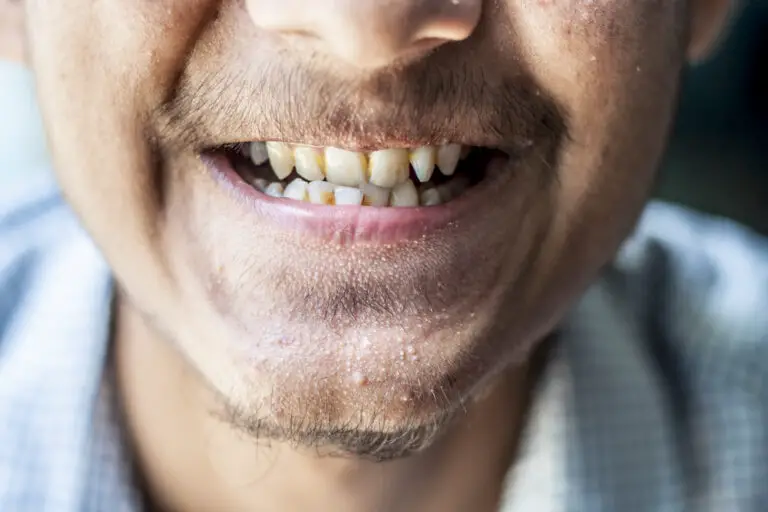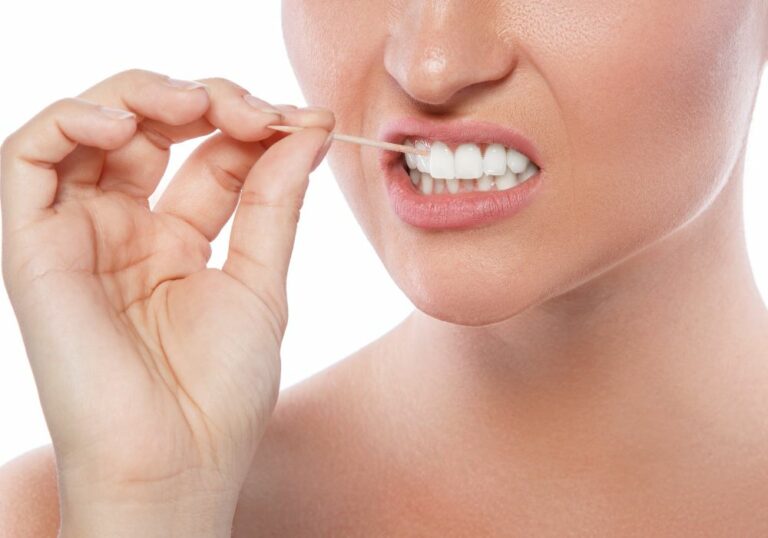Do you ever wonder if human teeth are strong? Teeth are an essential part of our body, as they help us chew our food and speak properly. But how strong are they really?
Human teeth are the hardest substance in the body. The outer layer of the teeth, called enamel, is made up of tightly packed mineral crystals that give it its strength. Enamel is even stronger than bone, but it can still be damaged by decay or trauma. Despite being strong, teeth can still break or chip if they are put under too much pressure.
So, while human teeth are indeed strong, they are not invincible. It is important to take care of your teeth by practicing good oral hygiene habits and avoiding habits that can damage them, such as biting down on hard objects or using your teeth as tools. Regular dental check-ups can also help catch any potential issues before they become more serious.
The Composition of Human Teeth
Human teeth are incredibly strong and durable, thanks to their unique composition. Teeth are made up of three layers: enamel, dentin, and pulp.
Enamel
Enamel is the hard, outermost layer of the tooth. It is the strongest substance in the human body and is made up of 96% minerals, primarily hydroxyapatite. Enamel is translucent and ranges in color from light yellow to grayish-white. It is the first line of defense against tooth decay and erosion. While enamel is extremely strong, it can still be damaged by excessive force or acidic substances.
Dentin
Dentin is the layer of the tooth that lies beneath the enamel. It is softer than enamel but still very hard and durable. Dentin is made up of tiny tubes called dentinal tubules, which contain nerve endings. When the enamel of a tooth is damaged, the underlying dentin can become exposed, causing sensitivity and pain. Dentin is also responsible for giving teeth their color, which can range from yellow to gray.
Pulp
Pulp is the innermost layer of the tooth and contains nerves, blood vessels, and connective tissue. It is responsible for nourishing the tooth and providing it with sensation. When the pulp becomes infected or inflamed, it can cause severe pain and may require a root canal procedure to remove it.
In summary, human teeth are incredibly strong and durable due to their unique composition of enamel, dentin, and pulp. Enamel is the strongest substance in the human body and protects teeth from decay and erosion. Dentin is softer than enamel but still very hard and gives teeth their color. Pulp is the innermost layer of the tooth and contains nerves and blood vessels.
Why Are Human Teeth Strong?
Have you ever wondered why your teeth are so strong? Human teeth are made up of different layers, each with its own unique properties. These layers work together to create teeth that are strong and durable.
The outermost layer of your teeth is called enamel. Enamel is the hardest substance in the human body and is made up of 96% densely packed minerals. This makes it the perfect protector for your teeth. Enamel protects your teeth from damage caused by chewing, biting, and grinding.
Beneath the enamel is another layer called dentin. Dentin is a softer, porous material that makes up most of your tooth’s structure. It is made up of tiny tubes called dentinal tubules, which connect the innermost layer of your tooth to the outside environment. Dentin is responsible for giving your teeth their color and shape.
At the center of your tooth is the pulp, which contains nerves and blood vessels. The pulp is responsible for keeping your teeth alive and healthy.
So why are human teeth so strong? The secret lies in the composition of enamel. Enamel is made up of 95% minerals, 4% water, and 1% protein. The main mineral present in enamel is hydroxyapatite, which gives it its strength and durability.
In addition to its mineral content, enamel is also unique in its structure. Enamel is made up of tightly packed rods that run from the surface of your tooth down to the dentin. This structure helps to distribute forces evenly across your tooth, making it less likely to crack or break.
Overall, the strength of human teeth comes from a combination of their mineral content, unique structure, and the way that their different layers work together. With proper care and maintenance, your teeth can last a lifetime.
Factors Affecting Tooth Strength
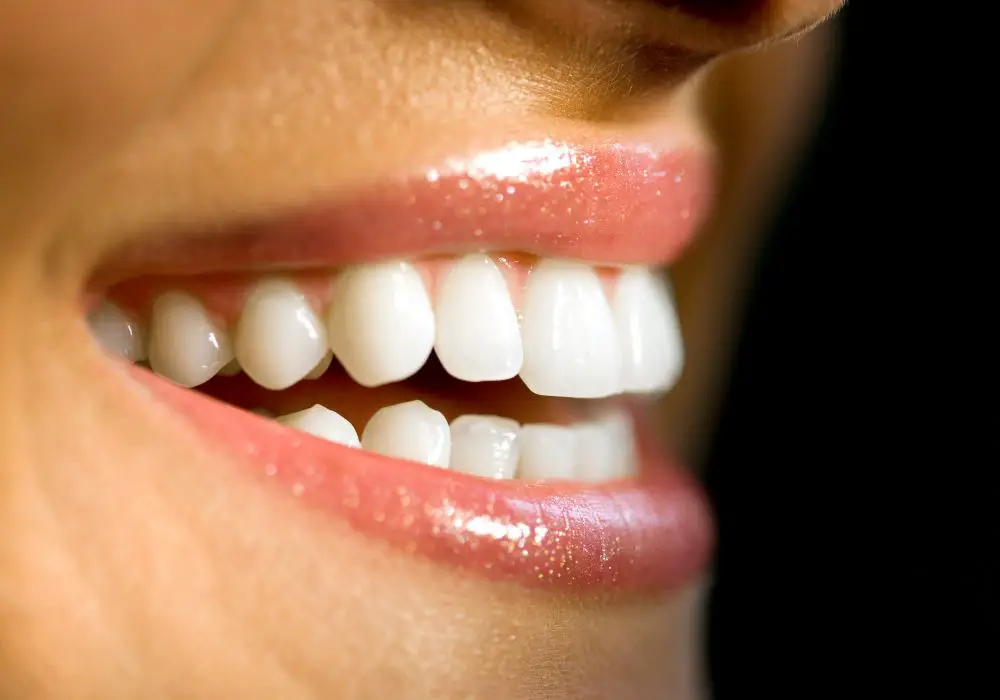
The strength of your teeth can be influenced by various factors. Here are some of the most significant factors that can affect the strength of your teeth:
Diet
Your diet plays a crucial role in maintaining the strength of your teeth. Consuming foods that are rich in calcium, vitamin D, and phosphorus can help strengthen your teeth. These nutrients are essential for the development and maintenance of healthy teeth. Additionally, avoiding sugary and acidic foods and drinks can help prevent tooth decay and erosion, which can weaken your teeth.
Oral Hygiene
Maintaining good oral hygiene is essential for keeping your teeth strong. Brushing your teeth twice a day, flossing daily, and using mouthwash can help remove plaque and bacteria that can cause tooth decay and gum disease. Neglecting your oral hygiene can lead to weakened teeth and other dental problems.
Genetics
Your genetics can also play a role in the strength of your teeth. Some people may be more susceptible to tooth decay or have weaker enamel due to genetic factors. However, practicing good oral hygiene and maintaining a healthy diet can still help strengthen your teeth regardless of your genetics.
Overall, maintaining good oral hygiene, eating a healthy diet, and being aware of your genetic predispositions can all contribute to the strength of your teeth. By taking care of your teeth, you can help ensure they remain strong and healthy for years to come.
Comparing Human Teeth to Animal Teeth
When comparing human teeth to animal teeth, there are a few key differences to consider. Here are some of the most notable differences:
Number of Teeth
Humans typically have 32 teeth, while most other mammals have a different number. For example, dogs have 42 teeth, cats have 30 teeth, and cows have up to 40 teeth.
Tooth Shape
Different animals have different tooth shapes depending on their diet. Herbivores like cows and horses have flat molars for grinding plant material, while carnivores like lions have sharp canines and incisors for tearing flesh. Human teeth are designed to chew and break down a variety of foods, which is why we have a mix of different tooth shapes.
Tooth Enamel
Tooth enamel is the outer layer of the tooth that protects it from damage. Human tooth enamel is one of the hardest substances in the body, but it is not as strong as some animal tooth enamel. For example, the enamel on a hippopotamus’s teeth is two inches thick, which helps protect them from damage when they fight with other hippos.
Tooth Replacement
Many animals have teeth that are constantly growing and being replaced throughout their lives. For example, sharks can grow and shed up to 50,000 teeth in their lifetime. Humans, on the other hand, only have two sets of teeth: baby teeth and permanent teeth.
Tooth Decay
Tooth decay is a common problem for humans, especially those who consume a lot of sugar. Animals, on the other hand, do not consume sugar like humans do, which means they are less likely to experience tooth decay.
Overall, human teeth are strong and durable, but they are not the strongest teeth in the animal kingdom. However, our teeth are well-suited to our omnivorous diet and allow us to eat a wide variety of foods.
The Role of Tooth Strength in Human Evolution
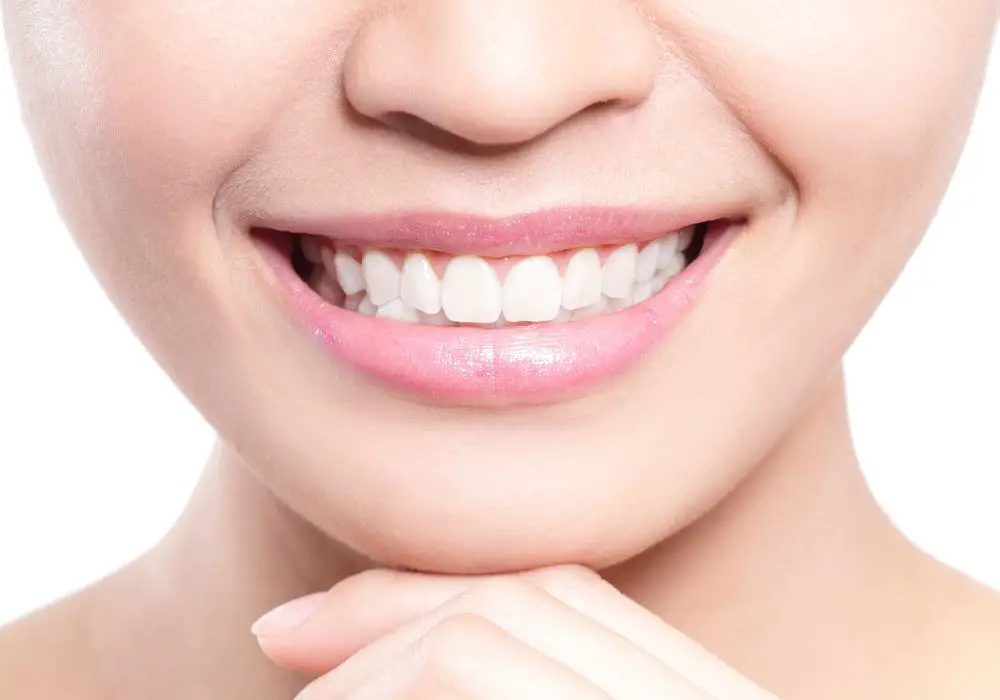
Your teeth play a crucial role in your ability to eat and survive. Throughout human evolution, the strength and durability of teeth have been essential for survival. Teeth have allowed humans to consume a wide variety of foods, including tough meats, nuts, and roots.
The strength of teeth has been a significant factor in the evolution of the human diet. The development of stronger teeth has allowed humans to eat harder and more abrasive foods, which has led to a more diverse and nutritious diet. The evolution of teeth has also played a significant role in the development of human culture and society.
The ability to eat a diverse range of foods has allowed humans to live in a wide variety of environments. The development of stronger teeth has allowed humans to adapt to new environments, such as colder climates, where tougher foods are more abundant. This adaptation has allowed humans to spread across the globe and thrive in a wide variety of environments.
The strength of teeth has also played a crucial role in the development of human culture and society. The ability to eat a diverse range of foods has allowed humans to develop unique culinary traditions and social customs. The development of agriculture and food processing techniques has also been influenced by the strength of teeth.
In conclusion, the strength of teeth has played a significant role in human evolution. The ability to eat a diverse range of foods has allowed humans to adapt to new environments and develop unique cultural traditions. The evolution of teeth has been essential for the survival and success of humans throughout history.
Common Myths About Tooth Strength
Your teeth are one of the strongest parts of your body, but there are many myths surrounding their strength. Here are some common misconceptions about tooth strength:
- Teeth are as strong as diamonds: While it is true that teeth are very strong, they are not as strong as diamonds. In fact, diamonds are the hardest mineral on earth, while teeth are made up of a combination of minerals that make them strong, but not invincible.
- Teeth cannot be damaged: This is a common myth that can lead to serious dental problems. Teeth can be damaged by a variety of factors, including decay, trauma, and grinding. It is important to take good care of your teeth to prevent damage and seek dental treatment if you experience any pain or discomfort.
- Teeth do not need to be cleaned if they do not hurt: Even if your teeth do not hurt, they still need to be cleaned regularly. Bacteria can build up on your teeth and cause decay, which can lead to pain and tooth loss if left untreated. Brushing twice a day and flossing daily can help prevent decay and keep your teeth strong.
- Whitening toothpaste weakens teeth: Some people believe that whitening toothpaste can weaken teeth by removing enamel. However, most whitening toothpastes are safe and effective when used as directed. Enamel can also be strengthened by using toothpaste that contains fluoride.
- Teeth cannot be repaired once they are damaged: While it is true that some dental damage cannot be reversed, many dental problems can be treated with restorative dentistry. This includes fillings, crowns, and root canals, which can help repair damaged teeth and prevent further decay.
Remember, taking good care of your teeth is important for maintaining their strength and preventing dental problems. Don’t believe these common myths about tooth strength, and always seek dental treatment if you experience any pain or discomfort.
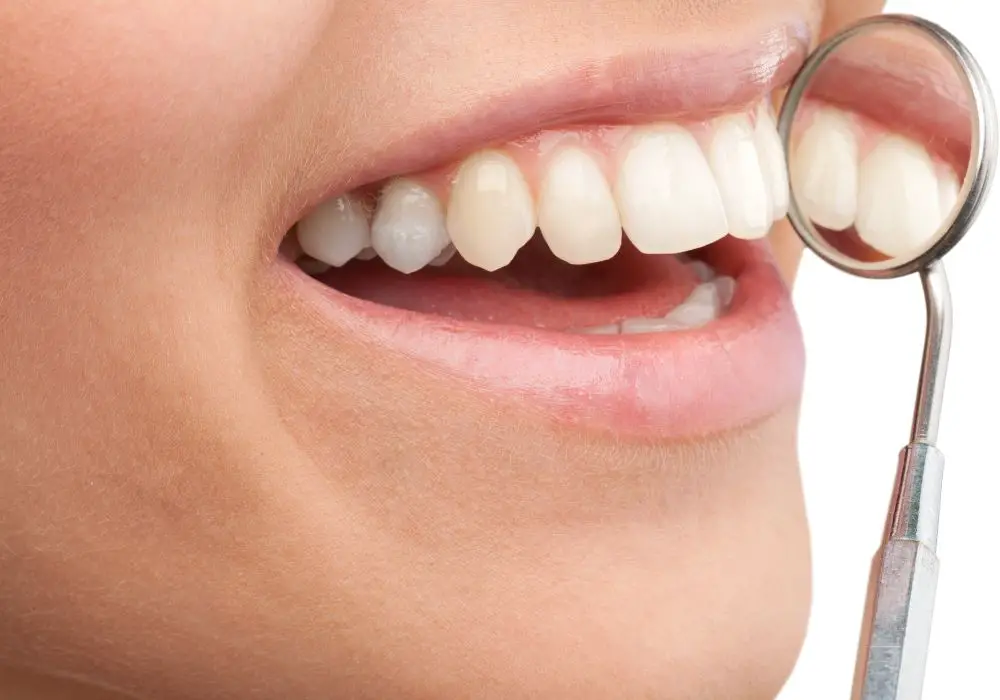
Frequently Asked Questions
How much force does it take to pull a tooth?
It takes about 50 to 100 pounds of force to pull a tooth. This is why it is important to take good care of your teeth to prevent them from becoming loose or damaged.
Are teeth stronger than bones?
Teeth are not stronger than bones. However, the enamel on the exterior of teeth is considered to be the hardest substance in the human body. This makes teeth very durable and able to withstand a lot of wear and tear.
How strong are human jaws?
Human jaws are quite strong and can exert a force of up to 200 pounds. This is why it is important to avoid using your teeth as tools or biting down on hard objects, as this can cause damage to your teeth and jaw.
What are teeth made of?
Teeth are made up of several layers. The outer layer is called enamel, which is the hardest substance in the human body. Underneath the enamel is dentin, which is a softer, yellowish layer that makes up the bulk of the tooth. The pulp, which contains nerves and blood vessels, is located in the center of the tooth.
Why do teeth sometimes break?
Teeth can break for a variety of reasons, including trauma, decay, and biting down on hard objects. It is important to take good care of your teeth and avoid bad habits, such as chewing on ice or using your teeth to open packages, to prevent damage.
Are human teeth as strong as steel?
No, human teeth are not as strong as steel. While teeth are very durable and can withstand a lot of wear and tear, they are not as strong as metal. However, the enamel on the exterior of teeth is considered to be the hardest substance in the human body.

